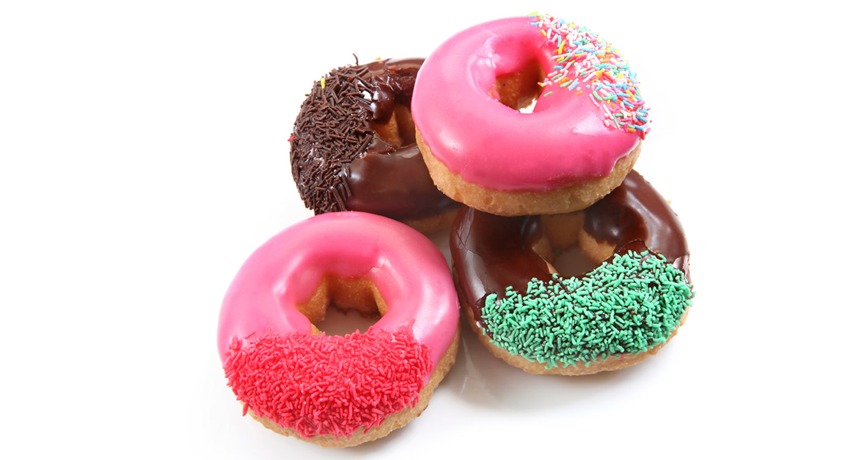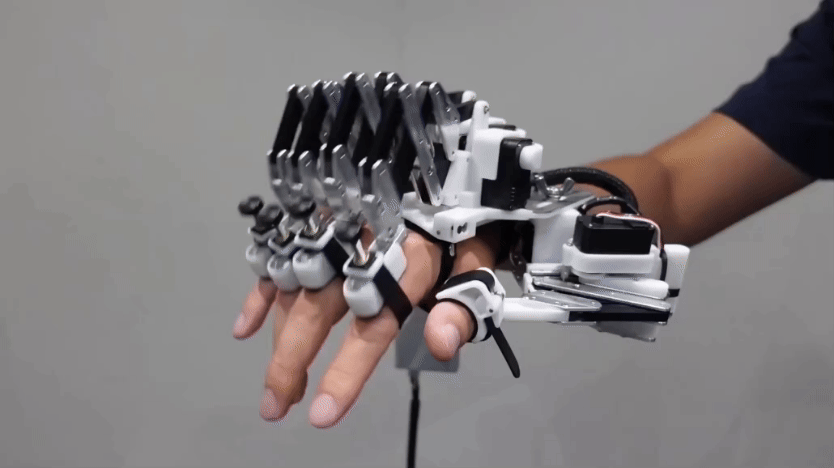Sleepyheads prefer junk food
A night without sleep changes the brain and how appetizing people find high-calorie foods

Pulling an all-nighter alters the brain and lowers a person’s willpower to eat right, a new study finds. High-calorie foods such as doughnuts looked more appealing to volunteers after losing just one night of sleep.
iStockphoto
By Janet Raloff
Pulling an all-nighter does a number on the brain, a new study finds. People who lost a night of sleep also lost much of their willpower to eat right. This connection could help explain why people who don’t regularly get a good night’s sleep are more likely to be obese.
For the new study, scientists recruited 23 adult volunteers to take part in tests at a sleep lab on two separate nights. On night one, the men and women were encouraged to sleep normally. On the other night (at least one week before or after the other), the scientists kept their recruits awake all night long.
After each night in the lab, the people reported how hungry they were. That didn’t differ after each night. But what foods the recruits found appetizing did — a lot.
The scientists showed the volunteers 80 pictures of food while they underwent brain scans. After seeing each picture, the men and women rated how much they desired that food. The brain scans recorded which parts of the brain became active during the viewing of each picture.
Low-calorie foods, like carrots, looked equally appetizing to volunteers after sleeping soundly or not at all. But junk foods (such as doughnuts and potato chips) looked a lot yummier after volunteers stayed awake all night. And the sleepier the recruits felt, the better those sweet and fatty foods looked.
The head scans showed that a night without sleep triggered changes in a test subject’s brain activity, too. Brain areas involved in making decisions about what to eat became less active. At the same time, brain activity rose in an area thought to promote eating.
Stephanie Greer of the University of California, Berkeley, and her coworkers reported their findings August 6 in Nature Communications.
At the University of Chicago, Eve Van Cauter has shown a link between appetite and sleep. She found that blood levels of hormones that tell the body how hungry or full we are — as well as food preferences — differ, depending on how well-rested people are. Almost a decade ago, she studied people who were allowed to sleep only four hours for two nights in a row. Her sleep-deprived recruits ate more — almost 25 percent more calories — than when they had gotten a full night’s sleep. And the sleepyheads selected mostly high-calorie foods.
Think that amount of sleep is crazy low? Not for many teens. A survey of high school students a few years ago by the Centers for Disease Control and Prevention found that about 10 percent of teens reported sleeping an average of just five hours per night. Almost 6 percent claimed to regularly get no more than four hours of shut-eye a night.
People are the only animals to voluntarily ignore their sleep needs, Van Cauter told Science News. They stay up to play, work, hang out with friends or surf the Web. But doing so, she says, is fighting our biology “because we are not wired for sleep deprivation.”
Power Words
biology The study of living things. The scientists who study living things are known as biologists.
brain scan The use of an imaging technology, typically using X-rays or a magnetic resonance imaging (or MRI) machine, to view structures inside the brain. With MRI technology — especially the type known as functional MRI (or fMRI) — the activity of different brain regions can be viewed during an event, such as viewing pictures, computing sums or listening to music.
calorie The amount of heat needed to raise the temperature of 1 gram of water by 1 °C.
obesity Extremely overweight. Obesity is associated with a wide range of health problems, including type 2 diabetes and high blood pressure.
recruit (in research) A new member of a group or human trial, or to enroll a new member into a research trial. Some may receive money or other compensation for their participation, particularly if they enter the trial healthy.
shut-eye Slang for sleep.
subjects (in research) The participants in a trial. The term usually refers to people who volunteered to take part. Some may receive money or other compensation for their participation, particularly if they entered the trial healthy.







